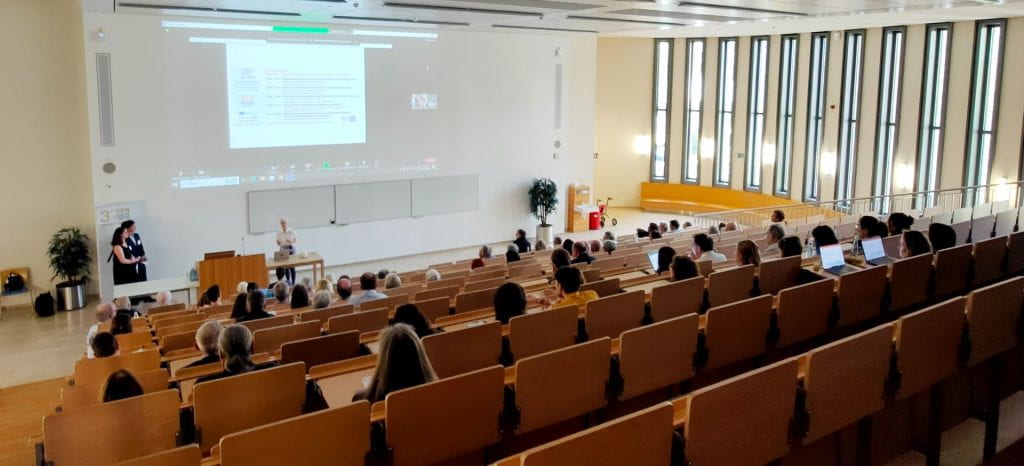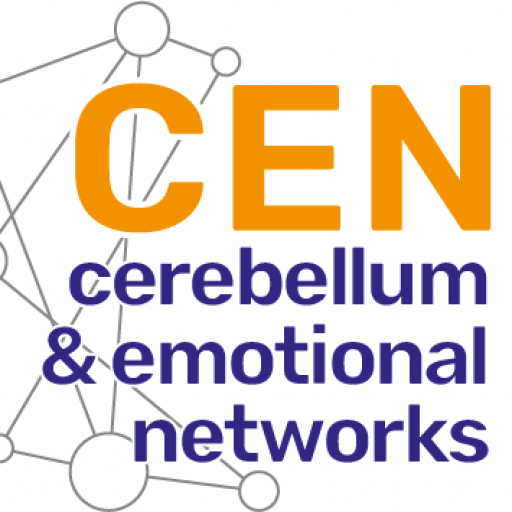The “Cerebellum and Emotional Network” (CEN) showed in its annual conference the importance of research for a deeper understanding of the influences of the cerebellum on emotional processing. The conference also highlighted the impact on mental health and neurological disorders. The event took place from July 26th to 28th, 2023 in the Deichmann Auditorium in the teaching and learning center of the Medical Faculty of the University of Duisburg-Essen on the campus of the University Hospital Essen.

Speakers from basic research and the clinic had their say, as did representatives of self-help groups and patient organizations. The aim of the conference was to achieve a holistic understanding of cerebellar dysfunction. “We therefore deliberately brought the perspective of those affected to the fore and encouraged the participants to jointly develop innovative solutions for the benefit of the patients,” says Prof. Dr. Dagmar Timmann, Chairwoman of this year’s conference. At CEN, world-leading researchers and medical professionals are connected to explore the cerebellum and its role in mental health and neurological disorders. “The main focus of the CEN is the training of students,” says Prof. Timmann. “Our goal is to interest young talents in cerebellar research and train them.” Therefore, our 15 CEN students were given the opportunity to take part in various workshops and, in addition to the professional exchange with top researchers from five countries, also had the opportunity to get in touch with non-academic partners.
The conference began with a public lecture on Wednesday, July 26th, which focused on the patient’s perspective and highlighted the importance of actively involving patients in shaping research, clinical practice and rehabilitation strategies. Prof. Dr. Dagmar Timmann and Prof. Dr. Philip Tovote (University of Würzburg), co-organizers of the conference, deepened the scientific research into the connection between the cerebellum and emotional disorders in their lectures. They were supported by the doctoral students in the CEN network Alice Doubliez (Essen), Enzo Nio (Essen), Julie Urrutia Desmaison (Paris) and Nina Seiffert (Würzburg). Marion Nadke, President of the German Heredo-Ataxie Society (DHAG), and Andreas Nadke, President of Euroataxia, offered unique insights into the perspectives of people directly affected by cerebellar disorders in their presentations, powerfully demonstrating the impact of scientific advances and compassionate care on those affected and their families. They also stressed the importance of collaboration between patients, healthcare providers and researchers to better address the needs of those affected, especially in rare diseases, which include most cerebellar diseases. Prof. Dr. Mario Siebler (Mediclin Fachklinik Rhein-Ruhr, Essen) showed the latest strategies and challenges in the rehabilitation of patients with ataxia. The program of the first day ended with a joint reception, where the participants had the opportunity to make contacts, exchange ideas and initiate cooperation.
The two-day conference also featured numerous workshops for network members, insightful presentations by CEN network students and an inspirational keynote address by Prof. Dr. Javier F. Medina from Baylor College of Medicine (Houston, USA), who focused on the contribution of the cerebellum to learning processes. The participants also took the opportunity to get to know Essen better as a city in the Ruhr area, for example with a visit to the UNESCO World Heritage site Zeche Zollverein and a picnic together in the Gruga Park.
